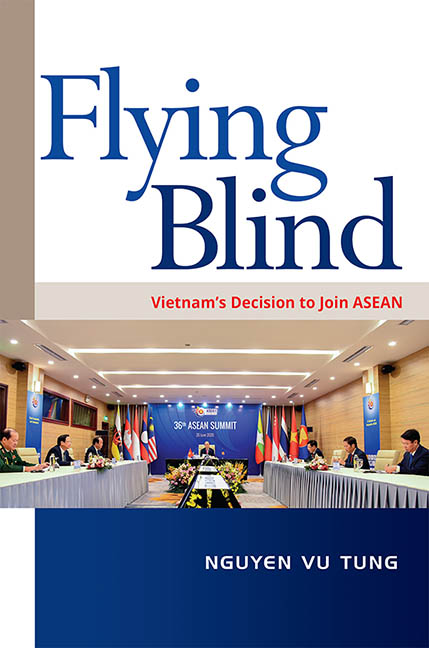Book contents
- Frontmatter
- Contents
- Acknowledgements
- Glossary
- 1 Introduction
- 2 The Paris Agreement and Vietnam: ASEAN Relations in the Early 1970s
- 3 1978 to 1985: Coexistence Between Two Opposing Groups
- 4 Joining ASEAN: Political and Strategic Factors
- 5 Jumping on a Moving Train: Vietnam Joins ASEAN
- 6 ASEAN Membership and Vietnam’s Shifting National Identity
- 7 Conclusion
- References
- Index
- The Author
2 - The Paris Agreement and Vietnam: ASEAN Relations in the Early 1970s
Published online by Cambridge University Press: 08 October 2021
- Frontmatter
- Contents
- Acknowledgements
- Glossary
- 1 Introduction
- 2 The Paris Agreement and Vietnam: ASEAN Relations in the Early 1970s
- 3 1978 to 1985: Coexistence Between Two Opposing Groups
- 4 Joining ASEAN: Political and Strategic Factors
- 5 Jumping on a Moving Train: Vietnam Joins ASEAN
- 6 ASEAN Membership and Vietnam’s Shifting National Identity
- 7 Conclusion
- References
- Index
- The Author
Summary
The Paris Agreement, which was signed on 27 January 1973, was the outcome of a fierce military struggle and an effective and creative negotiating strategy. By providing for the complete withdrawal of US troops from South Vietnam, the Agreement seriously weakened the Saigon regime and created favourable conditions for North Vietnam and the Provisional Revolutionary Government (PRG) to strengthen their position, thus creating the potentials for a final victory. Against this background, this chapter deals with relations between Vietnam ASEAN from roughly 1972 to 1978 and examines how the Paris Agreement and other factors influenced the worldview of Hanoi, and as a result, its policies towards ASEAN in a crucial period.
NEW PRIORITIES GIVEN TO REGIONAL POLICY
Following the Paris Agreement, a number of countries, including ASEAN member states, proceeded towards establishing diplomatic relations with the Democratic Republic of Vietnam (DRV) and the PRG. This gave rise to changes, still embryonic, in Hanoi's perception and subsequent policy directions with regard to Southeast Asia.
Firstly, there was a new perception of a higher stature of Vietnam in its relations with other countries in the region. A report of 1973 said that “the stature and influence enjoyed by the DRV and the status and prestige of the PRG have never been stronger”, and analysed this prestige in a number of aspects: Vietnam became a new model for local revolutionary movements as its performance and its experiences
were extremely valuable for the revolutionary movement in the region, strongly encouraged and supported the national independence spirit of regional countries, communist parties, progressive forces, and patriotic movements fighting for national independence, democracy, and social progress in the region.
Moreover, it was thought that Vietnam had become an important actor in the regional politics. According to one of the documents, “many states have considered Vietnam ‘a superpower’, with ‘a great stature’ and influence in Asia and the Pacific; peace-loving countries consider that Vietnam is in a unique position to help ease world tensions; and the countries that hold great ambitions regard us as a political opponent.” As a result, “activities at the regional level will be meaningless without the participation by Vietnam.”
- Type
- Chapter
- Information
- Flying Blind , pp. 9 - 39Publisher: ISEAS–Yusof Ishak InstitutePrint publication year: 2021



